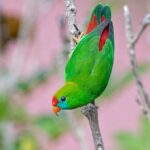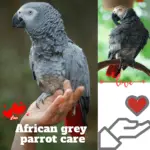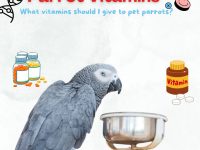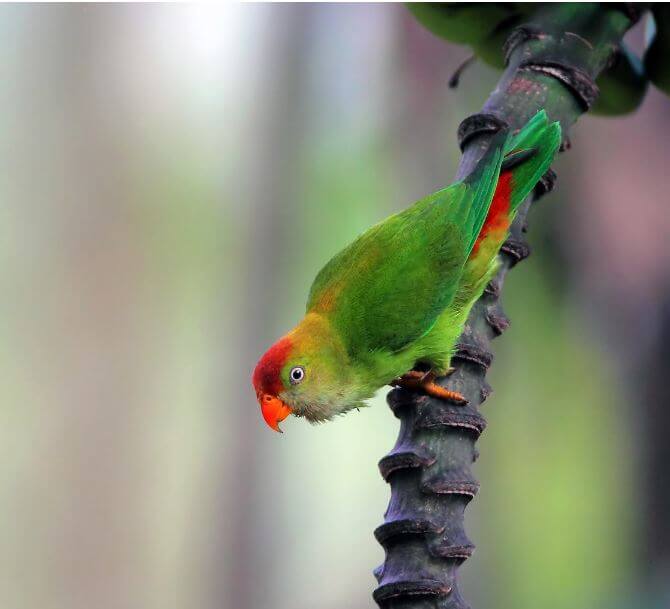
Sri Lanka Hanging-Parrot 13–14 cm. Bill orangish red; entire crown red, shading on the nape to golden yellow extending onto mantle and back;
face yellowish-green, extending in the thin line above the red-ringed eye and down onto sides of neck and underparts; chin and throat smudged blue; wings and tail green; rump and upper tail-coverts red; legs orange.
Sri Lanka Hanging-Parrot Female has less blue throat. Immature generally lacks head and mantle color and may fledge with face and forehead naked.
Systematics History
Closely related to L. Vernalis. Monotypic.
Subspecies
Monotypic.
Distribution
Sri Lanka.
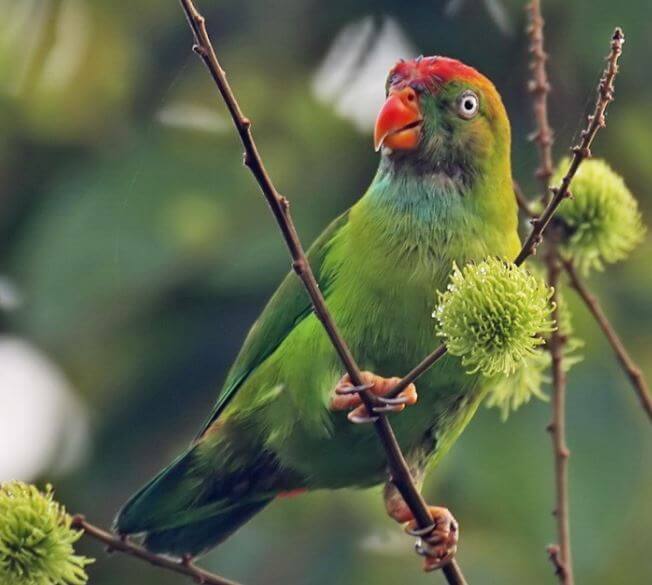
Habitat
Wooded country, groves, plantations, coconut groves, and gardens up to 1250 m, reaching 1600 m in NE monsoon.
Sri Lankan Hanging Parrot / Ceylon Lorikeet – (ගිරාමලිත්තා, Loriculus beryllinus)
SOURCE: JUMBLED
Movement
Some upward altitudinal displacement appears to occur in the NE monsoon.

Diet and Foraging
Nectar of Erythrina, Somalia and introduced eucalypts; seeds of Casuarina; the fruit of “jambu” (presumably Eugenia); flowers and fruit of cultivated bananas.
Sounds and Vocal Behavior
The commonest call of the Sri Lanka Hanging-Parrot is a high-pitched somewhat buzzy “tzee-zee-zeet”. When perched also utters squeaky warbles, high-pitched “see” notes, and combinations thereof. Overall quite similar to L. Vernalis.
Breeding
Jan–Sept, chiefly Mar-May. Sri Lanka Hanging-Parrot Nest in the hollow in a tree stump or branch. Eggs 2–3.
Sri Lanka Hanging Parrot |ශ්රී ලංකා ගිරා මලිත්තා | Documentary Video
https://www.youtube.com/watch?v=XRgsVOk1DR4
SOURCE: WILD Serendib
Conservation Status
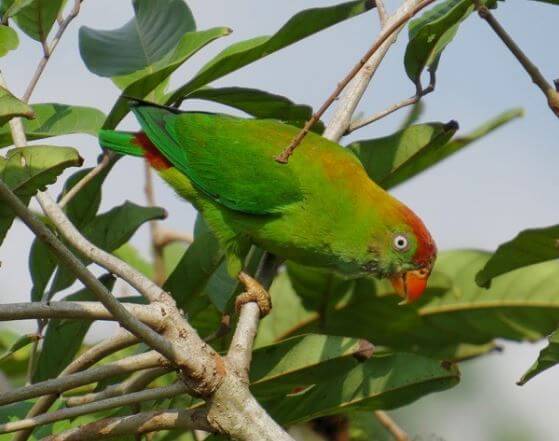
Not globally threatened. CITES II. A BirdLife “restricted-range” species. Widespread, and most plentiful in the SW of the island and almost absent from arid N.

